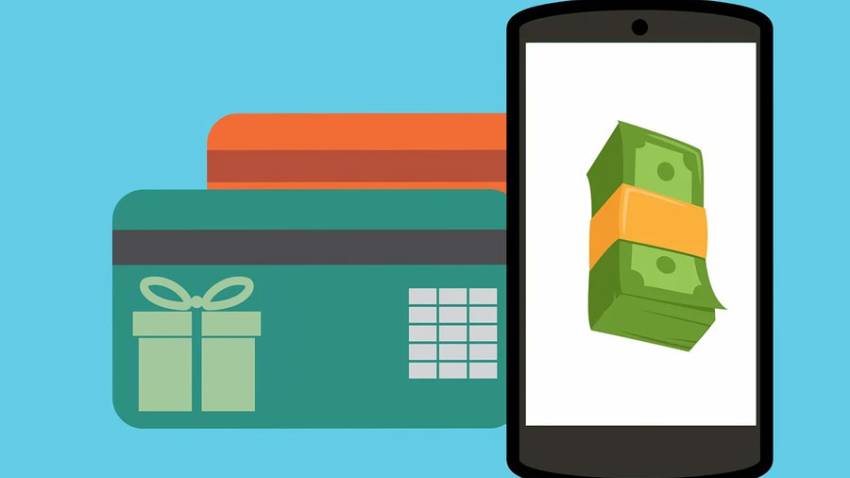Difference Between Payment Gateway and Payment Processor

New Delhi : The terms payment gateway and payment processor can be confusing since they sound similar. Some people tend to use these terms interchangeably, making it even more challenging to differentiate between the two.
However, they are different in more than one aspect, and it’s vital to compare payment gateways and payment processors to understand their key differences to choose a robust option for your business requirements.
This blog will look at payment gateways, payment processors, including a payment aggregator since it also plays a significant role in online transactions.
What is a Payment Processor?
A payment processor is responsible for handling customer transactions. It routes payment information from the customer’s cards to the issuing and acquirer banks. It also helps eliminate the chances of a fraudulent transaction by following strict security measures.
In the case of an offline transaction, a payment processor offers businesses a point-of-sale interface like card machines and other pieces of equipment.
What is a Payment Gateway?
While the payment processor companies handles information, a payment gateway is responsible for transmitting the payment data to the processor.
It helps connect the payment processor to merchant accounts and card companies, essentially making it an online POS terminal for eCommerce websites.
The payment gateway authenticates a customer’s digital payment credentials and then forwards the payment details to the payment processor.
While a payment processor makes transactions possible between two parties, a payment gateway is responsible for capturing the customer’s payment details and routing them back to the payment processor.
What is a Payment Aggregator?
A payment aggregator, also known as an acquirer, allows merchants to accept payments across varying digital modes without setting up separate integrations.
It is responsible for receiving funds from a customer’s account and transferring the same to the merchant account.
Choosing Between a Payment Gateway and Processor
If you are an offline business owner and all of your payments happen using in-person card payments, you won’t need a payment gateway to process payments.
However, suppose you own an online business and want to enable online transactions for customers. In that case, you will need both a payment processor and a payment gateway to make online payments possible.
Let’s look at how a payment cycle works across using just a payment processor vs using both a payment processor and a payment gateway.
Using a Payment Processor for Transactions:
1. The payment processing company provides a payment terminal to the merchant.
2. The terminal authenticates a customer’s card details and sends the payment information to the issuing bank for payment approval.
3. Once the issuing bank approves or declines the payment and sends that information back to the payment processor, which is then relayed to the payment terminal.
4. If the issuing bank has approved the transaction, the payment details are shared with the acquiring bank.
5. The transaction is now complete.
Using Both a Payment Processor and Payment Gateway for Transactions:
1. Once customers have selected a product or service, they are directed towards checkout to submit payment-related information.
2. The payment gateway authenticates the customer’s account by matching the details of the account number to the issuer’s card details.
3. While the payment processor is responsible for communicating payment information to the card’s network and back, it also confirms the card’s validity and checks it for compatibility with the 3D secure platform.
4. A payer authentication request is forwarded to the Access Control Server, where the CVV is verified.
5. The Access Control Server generates an account holder authentication value, which is then forwarded by the merchant to the acquirer.
6. The merchant sends a request to the payment aggregator, and it submits the request to the issuer bank.
7. If there are sufficient funds in the customer’s account, the requested amount is deducted and transferred to the merchant account.
How to Choose an Appropriate Payment Processor for your Business?
You must choose a good payment processor for your business to ensure that transactions occur efficiently and without any glitches. Here are a few points to watch for that will help you choose a suitable payment processor.
● PCI Compliance: It’s essential to choose a payment processor that meets all compliance requirements to give your customer’s a secure payment ecosystem.
● Software Compatibility: If you sell online products and services, you will need to choose a payment processor compatible with your business software to ensure there are no errors or delays in online transactions.
● Fraud Prevention: Choose a payment processor with a reputation for granting the highest levels of protection against data breaches and cyberattacks.
How to Choose an Appropriate Payment Gateway for your Business?
Just like it’s essential to choose a reliable payment processor, selecting a payment gateway like plural payment gateway that’s appropriate for your business needs is equally important. Here are a few things to check to make an informed decision.
● Mode of Payments: Your Payment gateway system should be able to handle multiple modes of payments such as digital wallets, UPI, and prepaid cards, etc., apart from credit and debit cards.
● Reliable and Timely Support: Choose a payment gateway that offers you dedicated support to ensure a smooth onboarding experience and a reduced learning curve.
● Personalized Checkout Experience: Customers love a customized view, and a customized checkout experience also gives your business increased brand recall value; therefore, go for a payment gateway integration that gives you the option to include your brand’s logo, colours, and font on the checkout page.
Now you know all the nitty-gritty of a payment gateway and payment processor, the key differences, inner workings, and why it is essential to have one for your business. We hope you can make an informed decision and choose a solution that can help provide a seamless experience to your customers and help you scale your business to greater heights!








